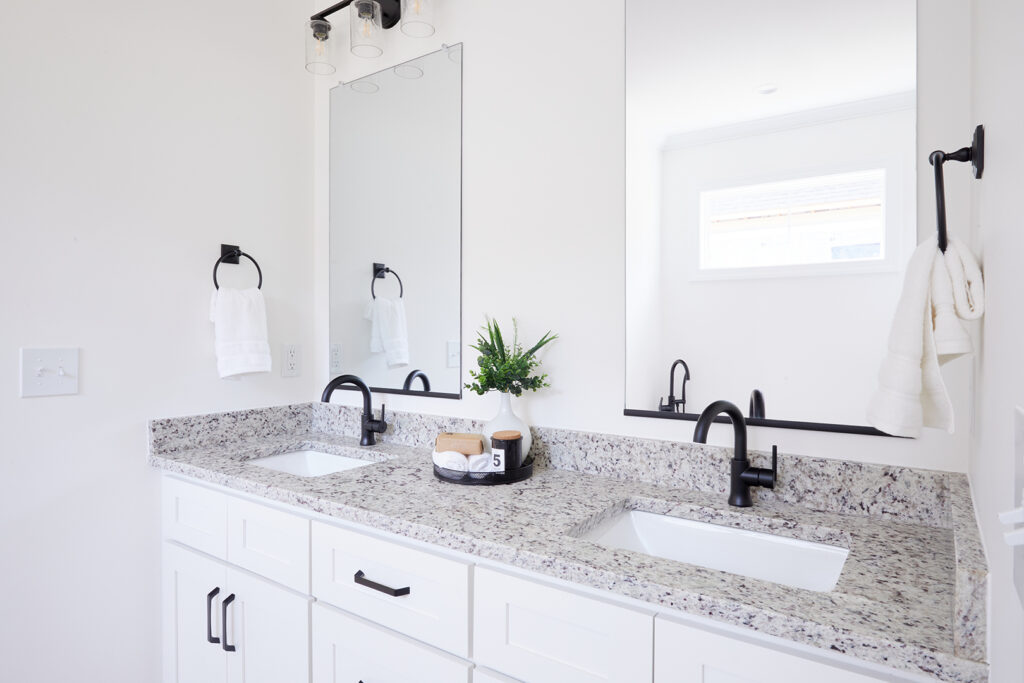When it comes time to renovate your kitchen or bathroom, one of the decisions you’ll have to make is what type of countertop material to choose. There are many options available, but one of the most popular choices is natural stone. Stone provides a unique look that can’t be matched by other materials. However, before you buy stone for your home, there are a few questions you should ask yourself. In this blog post, we will discuss eight essential questions to ask before buying natural stone for your countertops!
How Thick Does It Need to Be?
Countertop slabs usually measure 2 centimeters (¾ inch) or 3 centimeters (1¼ inches). To give the illusion of an extra thick countertop, it’s common to laminate a 2-centimeter edge on its front.
Are There Different Types of Edges?
There are many different styles of edges to choose from. You can select from a basic pencil edge or square edge, or go with a more rounded bullnose edge-or a half bullnose edge (rounded on the top and square on the bottom), a beveled edge and ogee edge are also very popular. You might also consider a waterfall edge, which runs down an entire side of an exposed cabinet on a kitchen island or bar.
Are There Fissures?
Nature has naturally created spaces of weakness in stone, often appearing as thin creases that are known as fissures. If a fissure appears in an area where the stone needs to be strong, such as near or around a sink or on top of an overhang, it can oftentimes prevent you from using that particular piece for your project due to its weakened state. Additionally, this could result in fracturing of the slab during fabrication.
Is It Strong Enough to Span?
Countertops have the remarkable ability to span across large areas- extending over dishwashers, breakfast bars, and more. In the case of manufactured stone such as quartz, maximum spans may be limited. Depending on how large an unsupported area is, your fabricator could advise a range of options which include: adding a stylish corbel or some other support, installing an unseen steel brace, or routing below the stone to fit in either metal or fiberglass rods. Your fabricator will guide you in assessing how much support your counter requires.
How Porous Is the Material?
Not all stone is the same; some possess unique qualities that make them superior to others. Some stones, such as marble, are more porous than others, and are more likely to absorb stains from substances like red wine and coffee. In comparison to other stones, soapstone is softer and can easily be scratched. Before settling on a stone, consider carefully how you intend to utilize it and the possible contact that could be damaging for the material.
Will the Stone Hold up Over Time?
The frequency of cleaning your stone surface depends on both the lifestyle you lead and how delicate it is. Be mindful that certain cleansing products can etch limestone, marble, or other materials.
What’s the Source of the Stone?
Stone is mined from quarries around the globe, including here in America. When choosing a material, one should contemplate its origin and production methods, the ecological effects of transporting it to your area as well as whether or not it is an eco-friendly, sensible and durable choice.
Still Have Questions?
If you still have questions about your project and choosing the right stone, be sure to consult a professional. Amanzi Marble & Granite can answer your questions and help you find the best stone for your project. With our expertise, we’ll be able to guide you through the entire process from selecting materials to installation. When it comes to natural stone projects, ask questions! It will ensure that you get exactly what you need for your countertop or other project. Contact Amanzi today to get started on your stone project! We look forward to hearing from you.




